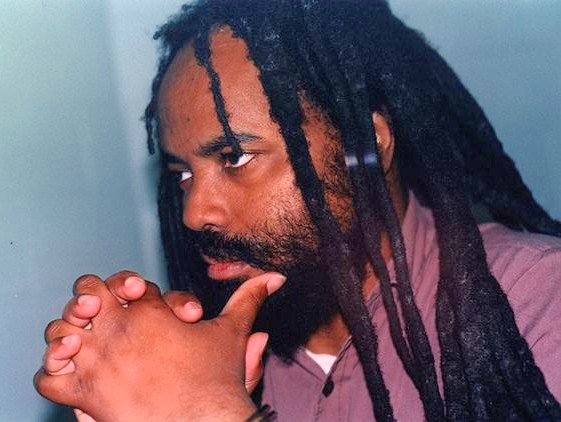

Mumia Abu-Jama
If we are to adopt the name of abolitionist, let us do so openly, mindfully and aware of its great and true significance.
For guild history has rewritten the texts and penned what Black historian Lerone Bennett has called “theology” rather than truth to depict some figures of the past, to create a past that never lived.
We all know of Lincoln, for we were taught of him as children: “The Great Emancipator.” Bennett’s view is that he was (as were most men of his era) a white supremacist who was “forced into glory” (the title of Bennett’s book, by the way). He was many things, but he wasn’t an abolitionist.
In his pre-presidential speech before Cooper Union in New York, Lincoln gave a contemptuous tone to his comments about “abolitionists,” and he took great pains to separate himself from a group seen as mad by the elites. John Brown, perhaps the noblest white figure of his age, is but a madman on Lincoln’s tongue.


Mumia Abu-Jamal
But any considered vista of history shows us that this small, focused and brave group sent vibrations of honor through the annals of time and gave us new ways of reliving the abolitionist creed in new eras of U.S. history.
Both Howard Zinn and Staughton Lynd, two of the most-loved and most-respected historians of the 1960s, saw the youth of the Civil Rights Movement as the new abolitionists.
Abolitionists are, simply put, those beings who look out upon their time and say, “No.”
They want to abolish state policies that they cannot abide. Slavery. Mass incarceration. The death penalty. Juvenile life. Solitary confinement. Police terrorism.
Those goals are worthy of the name “abolitionist.” Only the fire and will seem to be lacking. Let us recover their vision — and build new ones that soar towards the bright morning of Freedom.
And yet — and yet — before we hug ourselves in isolated, sweet self-contentment, let us ponder our history and one of its most potent turning points.
Our revered abolitionist ancestor, Frederick Douglass, as the Civil War was dying down in favor of the ending of slavery, warned his abolitionist brethren and sisters to beware of thinking that the battle was over. In his typical, lyrical, Southern-informed proverb, he told them: “Slavery has been fruitful in giving itself names. It has been called ‘the peculiar institution,’ ‘the social system’ and the ‘impediment.’
“It has been called by a great many names, and it will call itself by yet another name; and you and I and all of us had better wait and see what new form this old monster will assume, in what new skin this old snake will come forth next.”
It is our abolitionist duty to hear Douglass well, as we tackle monsters we dare to think are new, but are, in actuality, “old wine in new bottles.” If he had been heeded, perhaps Reconstruction could’ve been extended, instead of its miserable 10 years. Instead, too many abolitionists took off their fighting clothes and went back home, satisfied that the good fight had been won.
Let us fight with Light in our eyes, that we see what is before us, and not succumb to New Jim Crows, ever again.
Long live John Africa!
In the Spirit of the Ancestors!
This column, originally published June 17, 2015, is part of a series of “Abolition Statements” from members of the Abolition Journal Collective and Editorial Review Board. See more at tinyurl.com/5ddunrjr.
Hamas issued the following statement on April 24, 2025, published on Resistance News Network. The…
By D. Musa Springer This statement is from Hood Communist editor and organizer D. Musa…
Portland, Oregon On April 12 — following protests in Seattle and elsewhere in support of…
This statement was recently issued by over 30 groups. On Friday, March 28, Dr. Helyeh…
When Donald Trump announced massive tariffs on foreign imports April 2, Wall Street investors saw…
The century-long struggle to abolish the death penalty in the U.S. has been making significant…